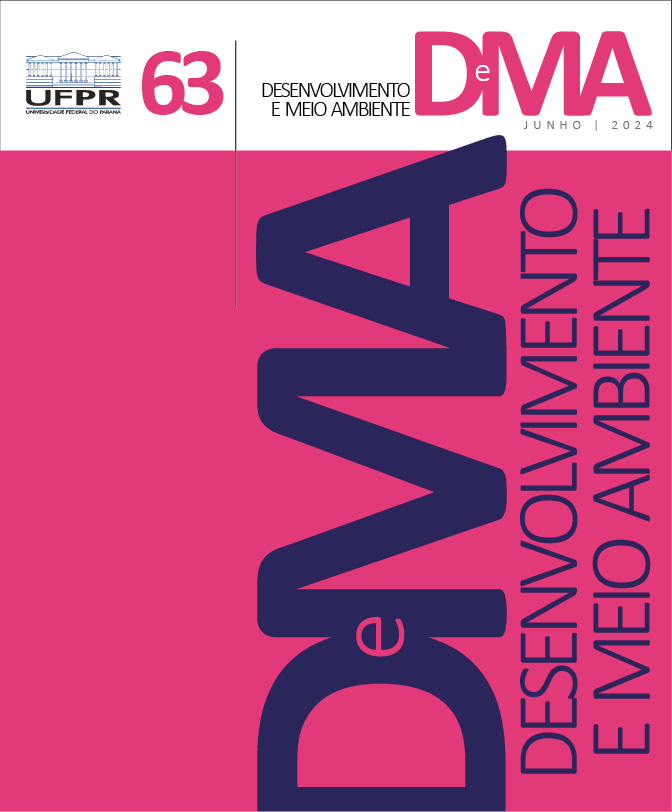Climate Emergency and Transformation of Rural Areas: Eruption of ecological critiques and justifications in social conflicts in the São Paulo countryside
DOI:
https://doi.org/10.5380/dma.v63i0.88012Keywords:
climate emergencies, global risk society, socioenvironmental justice, agrarian reform, sustainable agricultureAbstract
In the last few decades, the worsening of the global climate crisis has constituted new challenges for environmental and social sciences, especially in the mobilization of theoretical-methodological approaches capable of explaining the socioecological complexity of the problem. The current study comprises an effort in this sense, guided by the following question: “How do climate emergencies affect the social and political order in modernity in times of climate emergency or global risk society?”. The objective is to explain how the new socioecological issues have impacted the disputes around the Agrarian Reform in the country. For this purpose, a case study was carried out in the Mário Lago settlement, Ribeirão Preto/SP, whose justification is based on defense of the environment, especially on protecting the waters of the Guarani Aquifer. In addition to that, the sociology of justifications and the sociology of metamorphoses were adopted as theoretical assumptions. For composition of the data corpuses, 16 interviews were carried out in the life report model, with actors involved in the socioecological valuation of the settlement, as well as the monitoring of disputes in local public arenas. The strategies for the production of diverse veracity evidence that provides the basis for the discourses justifying the ecological option mobilized by the MST were also analyzed. It is concluded that the socioecological principles have been consolidated as a new functionality of Agriculture, representing a significant social and political force in disputes around the Agrarian Reform, considering the case of the state of São Paulo in particular.
Downloads
Published
How to Cite
Issue
Section
License
Copyright on works published in this journal rests with the author, with first publication rights for the journal. The content of published works is the sole responsibility of the authors. DMA is an open access journal and has adopted the Creative Commons Attribution 4.0 Not Adapted (CC-BY) license since January 2023. Therefore, when published by this journal, articles are free to share (copy and redistribute the material in any medium or format for any purpose, even commercial) and adapt (remix, transform, and create from the material for any purpose, even commercial). You must give appropriate credit, provide a link to the license and indicate if changes have been made.
The contents published by DMA from v. 53, 2020 to v. 60, 2022 are protected by the Creative Commons Attribution-NonCommercial-NoDerivatives 4.0 International license.
DMA has been an open access journal since its creation, however, from v.1 of 2000 to v. 52 of 2019, the journal did not adopt a Creative Commons license and therefore the type of license is not indicated on the first page of the articles.




